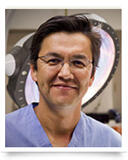Safety, Risks & Benefits of Heart Valve Surgery During COVID-19: What 8 Facts Should You Know?
Published: September 17, 2020
As the COVID-19 pandemic continues, patients are asking important questions about the safety, the risks and the benefits of heart valve surgery. Those questions include:
- Is it safe to be in a hospital during the COVID-19 pandemic?
- What steps are hospitals taking to minimize the risk of COVID-19 infections for heart surgery patients?
- Are there symptoms that patients should "watch out for" if their valve disease is getting worse?
- What are the risks for patients who choose NOT to get their valves treated during the COVID-19 pandemic?
- Can heart valve disease be fatal if not treated during the pandemic?
- What happens if a patient gets COVID-19 while in the hospital?
- What are the risks for patients with cardiovascular disease that get the coronavirus?
- Are surgical or transcatheter valve procedures more or less risky during the COVID-19 pandemic?
To answer those questions, I met with Dr. Chris Malaisrie, a leading cardiac surgeon at Northwestern Medicine and professor of surgery at Northwestern University. As you may know, Dr. Malaisrie is a heart valve specialist who focuses on minimally-invasive techniques including TAVR. Here are the highlights of this insightful discussion with Dr. Malaisrie.
Key Patient Learnings from Dr. Malaisrie
There were so many great points in Dr. Malaisrie's discussion for all members of our community to consider:
- Hospitals remain a safe place for patients with cardiac conditions including heart valve disease.
- Hospitals and health systems are taking several steps and implementing operational protocols to ensure patient safety including no visitor restrictions, comprehensive screening, and universal masking.
- Patients who choose to NOT get treatment for severe valvular disease during the pandemic can be at risk for heart failure, heart attack, stroke and death.
- Symptoms that patients should "watch out for" are shortness of breath, chest pain, fainting, heart palpitations and leg swelling.
- Research indicates that patients who "wait too long" to get treatment for valvular disorders are at risk for sudden cardiac arrest and death.
- To minimize the risk of COVID-19 infections for heart valve patients, hospitals separate COVID-19 patients from cardiac surgery patients in separate units and/or separate floors of the hospital. Patients with COVID-19 do not share rooms with heart valve surgery patients.
- Research from China, Italy and the United States indicate that patients with untreated cardiac conditions are at high-risk for complications from COVID-19.
- Patients who receive transcatheter heart valve procedures including TAVR and the MitraClip are typically able to recover faster and have shorter hospital stays.
Thanks Dr. Malaisrie!!!!
On behalf of our patient community, I would like to thank Dr. Chris Malaisrie for taking the time to share his clinical experiences and research specific to the safety, the risks and the benefits of heart valve surgery during the COVID-19 pandemic!
I am hopeful this educational information will help patients better understand how to manage their valvular disorders during this very difficult time.
Related Articles:
- Free eBook: Advances in COVID-19 & Heart Valve Therapy
- See Dr. Malaisrie's Interactive Surgeon Profile
- Discover the COVID-19 Resources at HeartValveSurgery.com
- Patient Success: In Difficult Times, John & Larry Inspire Us
Keep on tickin!
Adam
P.S. For the hearing impaired members of our community, I have provided a written transcript of this video interview below:
Adam: Hi everybody. It’s Adam with heartvalvesurgery.com. This is a special COVID-19 update. As the pandemic continues, we’re receiving many great patient questions about the safety, this risks, and the opportunities of heart valve surgery at this very difficult time. To get you expert answers to those questions and more, I wanted to bring in Dr. Chris Malaisrie, who’s a leading cardiac surgeon at Northwestern Medicine in Chicago. Dr. Malaisrie, are you there?
Dr. Malaisrie: I am. Adam: Great, so everybody in our community knows Dr. Malaisrie has been a champion over the past many, many years. Dr. Malaisrie, you’ve helped us educate many patients and you’ve also successfully treated so many folks in our community, including the likes of John Pascarella, Jim Whitney, Nancy Snead, Janice Kielbasa. Could you maybe share for the folks out there a little bit about your attraction to cardiac surgery and why this is so important to you in your practice?
Dr. Malaisrie: Adam, thank you very much for inviting me to discuss this important topic during the pandemic. I am a cardiac surgeon in Northwestern Medicine and a professor of surgery at Northwestern University. Cardiac surgery for me represents a unique opportunity to help patients with cardiovascular disease and also to pioneer techniques to help patients recover quicker. That includes minimally invasive surgery as well as transcatheter options. We’re seeing nowadays with the COVID epidemic as we try to reactivate cardiac surgery that these are becoming very important options for our patients going forward.
Adam: Dr. Malaisrie, as you and so many others reactive cardiac surgery, I can’t think of a better time to be asking someone like yourself these important questions. The first question we have for you is a very appropriate one, which is will it be safe for patients to be in a hospital during the COVID pandemic.
Dr. Malaisrie: Adam, that’s a very important question and the answer is yes. Even during the pandemic, hospitals remain a very safe place to receive medical care. In particular for patients who are having acute symptoms and suffering from critical symptoms such as heart attack, stroke, and other cardiovascular disease, it’s very important for those patients who come in the hospital as they always have to get treated for their acute illness. We’ve certainly heard of cases where patients have been waiting on symptoms that turn out to be very serious cardiac conditions that should’ve been treated days, maybe weeks prior. These patients should come in and get these symptoms evaluated in a timely fashion. There is a misconception out there that we have stopped doing cardiovascular procedures. That is not true. Most governors have ordered hospitals to stop doing elective surgery but all hospitals continue to do emergent cardiac surgery. That has not stopped through the pandemic because we know patients still have their heart attacks, still have their valvular heart disease that needs to be treated. We have other options for patients with very mild symptoms to be addressed and treated and that includes telehealth. Telehealth via either telephone or with video conference has become a very good option for patients to see their doctors or healthcare providers without having to come into the hospital. That becomes a very good option for patients with mild disease.
Adam: Got it. Dr. Malaisrie, if I’m a patient and I have valvular disease, aortic stenosis, for example, that has progressed beyond the point that I can’t wait and I need to come in and have surgery, especially as you go through the reactivation process, I guess one of the questions patients will have is, okay, it’s safe, but what might be those things that Northwestern has done to ensure the safety of my health while I’m there having valvular therapy?
Dr. Malaisrie: We follow CDC guidelines as well as state’s mandates which are constantly evolving. There are several things in particular I like to tell our patients waiting out there. We have actively pursued mitigation efforts. There’s three things that we do at our hospital that I think that’s helped with reducing these risks. The first is that there is a strict no visitor policy rule. Family members and friends cannot come in the hospital and visit their family members. We do counteract that by offering such web conferences as FaceTime and Skype. The second is that we have comprehensive screening for anybody who enters the hospital. Some really cool things that we’ve done there is using thermal scanning. We have video cameras as anybody who walks in the hospital automatically gets temperature taken. We don’t actually have to stop anybody because it is seen on the video camera as patients walk through the door. Finally, we have universal masking for all of our employees and anybody who comes into the hospital. These three things I think will help minimize the risk to our healthcare professionals and our patients.
Adam: Dr. Malaisrie, it is great to hear all the steps and protocols that your team is putting in place to assure the safety of the patients, their family members, and of course, your team. That said, I imagine there are going to be folks out there who are still a little hesitant to come to the hospital for surgery. That can be very dangerous for them. As we know, valve disease, just given its nature, is not going to wait for the pandemic to end before the valve disease gets worse. I’m really curious to know, are there any indicators, are there any symptoms that patients should really be watching out for right now to self-monitor to see if their valve disease is actually getting worse?
Dr. Malaisrie: Yes, our clinic in particular has been very active with symptom follow-up and symptom progression. Someone from my clinic has been following up with all the patients that have been postponed for cardiac surgery to monitor for progression of symptoms. I think there are five symptoms that people should be on the lookout for. The first one is shortness of breath. The second one is new chest pain. The third one is passing out. Healthcare professionals sometimes call that syncope. The fourth one is heart palpitations, which could represent arrhythmia and abnormal heart rhythms, in particular atrial fibrillation, very common in our patients with valvular heart disease, and finally, leg swelling. These are the five symptoms that we should look out for. If patients have start having those symptoms, they should immediately call their healthcare provider. For our clinic, we will ask you if any of the symptoms have arised. In fact, we’ve been following several of our patients who’ve been postponed. One of our patients, just last week, progressed from asymptomatic to symptomatic phase, started to have shortness of breath. We brought that patient in and I did the operation for that patient yesterday with very good outcomes. I think it’s very important to follow symptoms and alert your healthcare professionals if they do arise.
Adam: Dr. Malaisrie, thank you and your team for being so proactive in tracking these patients. I can’t tell you how much I’m sure that patient feels comforted knowing not only did you track them but you brought them in to take care of them at Northwestern Medicine. A quick follow-up is all about the potential risks. As patients, we know we have this disease. We’ve been diagnosed with it. Maybe we’re seeing these symptoms develop and maybe we think we can just wait. Can you talk about some of the risks that could potentially happen for a patient who chooses perhaps not to get their valve treated?
Dr. Malaisrie: There really is a risk to waiting. Waiting too long to proceed with a planned cardiac operation can be extreme. In particular, in certain cardiac conditions, there is an association with sudden cardiac death or being admitted with acute heart failure symptoms and these are both conditions we want to avoid for our patients. In fact, our hospital has studied certain valvular conditions, in particular aortic stenosis, and found that there’s a risk of about 4% per month while waiting for valve replacement, in particular for aortic stenosis. That adds up very quickly, you’re talking about one, two, or three months.
Adam: Dr. Malaisrie, I cannot thank you enough for doing the research and sharing that data with us. For an undertreated disease, many patients I’m sure are wondering right now, given those risks, is heart valve disease, if I wait too long, could it be fatal for me?
Dr. Malaisrie: It can be rapidly fatal for aortic stenosis and sometimes mitral regurgitation. Symptoms herald the onset of heart failure, and once the muscle starts to fail, it can become a one-way road and we cannot reverse it, even with a successful valve repair or valve replacement. It’s very important to get these conditions treated before we have very severe symptoms in our patients.
Adam: One of the questions that came in was all about a worst case scenario, and that scenario is, if I was to come in to get heart surgery performed and I did get COVID-19, what happens?
Dr. Malaisrie: We do everything we can to avoid that possibility, and although most hospitals are taking care of patients with COVID, people should know that those COVID patients are isolated in particular part of the hospital. Some hospitals, like ours, have 1,000 beds on multiple floors over multiple buildings so there’s no point in time when a COVID patient who is a positive is intermingling with a patient who does not have COVID. In fact, no one shares any rooms and they do not share the same unit or floor oftentimes. You can be very safe in the hospital. What I’m more worried about, Adam, is what would happen if a patient with a cardiac condition subsequently gets COVID because that patient is at extreme risk for complications. We know that with COVID that risk factors include age and underlying disease. The number one underlying disease that increases complications with COVID is cardiovascular disease. There’s some studies from China, Italy, and now the United States, that show that with a triplet of COVID infection, underlying cardiac disease and ongoing heart injury, that the risk for that patient can be as high as 50%. I like to stress to our patients who have cardiac conditions who are waiting for cardiac surgery that they do mitigation efforts, including but not limited to social distancing, frequent hand washing, and wearing a mask. These can keep our patients safe while they’re waiting for a cardiac surgery.
Adam: Great points, Dr. Malaisrie. Here’s an interesting question from Ed. He asks, would you say that in this environment, there are some valvular procedures that are more or less risky, surgical aortic valve replacement versus transcatheter aortic valve replacement or mitral valve repair versus something like the MitraClip?
Dr. Malaisrie: The great thing about valvular heart surgery now is that we have so many options to treat our patients, from open heart surgery to minimally invasive cardiac surgery now to transcatheter valve operations. All three options have very low risk, but transcatheter valve operations are associated with a very quick recovery and this can be very important because we want to get our patients recovered and out of the hospital as soon as possible. That helps with resource allocation. Some hospitals need those beds for COVID patients, but most important, we want to get our patients recovered very quickly and on to a normal life.
Adam: On behalf of all of our community, thanks to you, thanks to the entire team on Northwestern Medicine for being on the frontline and ensuring these patients with valvular disease get back on track to health. Thank you so much for being with us today.
Dr. Malaisrie: Thank you very much, Adam.
Adam: What we’re going to do is we’re going to put up your contact information. Should any patients want to get in touch with Dr. Malaisrie, they can do so as they watch this video. Again, Dr. Malaisrie, thanks for everything you’re doing.
Dr. Malaisrie: Thank you very much.





